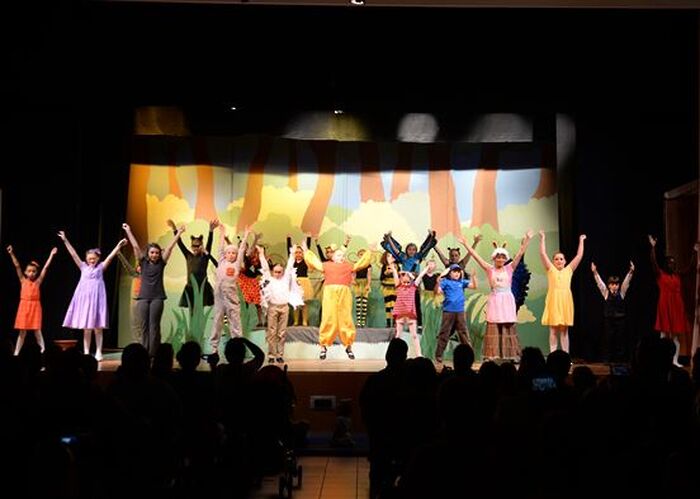FENCES review: ‘a heart-wrenching outpouring of passion’
Ada Barume praises this BME production for not letting talent go to waste

Having already seen Ross’s past production of Macbeth last year, I was interested to see how a play more squarely based on black experience would work in the midst of Cambridge’s overwhelmingly white theatre scene. The premise of the play was largely expositional, documenting the life of a black family in 1950’s Pittsburg.
“Beautifully acted”
The narrative is, arguably, unexceptional but the character exploration is what makes the piece so moving. Ross makes the most of the wealth of talent available to her that is often overlooked in the Cambridge theatre scene. Whilst Peter Adefioye (Troy) is the stand out performer of the night, Maya Bailey-Braendgaard’s Rose was also beautifully acted. Adeofioye’s performance mastered the authoritative presence of the black patriarch, and his interactions with his friend Bono (Dami Laoye) were particularly genuine, adding a dimension to the character that created a convincing complexity.
In her role as Rose, Maya Bailey-Braendgaard showed us the effectiveness of subtle character exposition, what begins as a palpable indifference toward Troy’s ‘passive’ wife, as she drifts on and off stage, outshone by her husband’s charisma, builds into a heart-wrenching outpouring of passion. What this piece does most successfully is build up to the cross-over of sympathy, at the moment of the switch, we fall for Rose and Troy is rendered to the ranks of villainy. It is a testament to great acting and direction that this transition is so instantaneously achieved as, one imagines, Wilson intended. Other notable performances were given by Roslynn Ampomah (Gabe) who also tilted to the ratio of female to male actors to a more favourable balance, and acted as a touchstone for directing our sympathies.
“A heart-wrenching outpouring of passion”
Overall, none of the cast could be described as a ‘weak link’ and southern American accents were impressively consistent throughout. The set design was also successful and the motif of the fence building provided a nice chronological marker for the advancement of the narrative. Sitting of the end of the front row, I found that, at times, the staging did obstruct my view of the actors' faces and some of the movement around the stage was occasionally a little uncertain.
The tech, such the red lighting used for Troy’s introspective moments, though simple, worked well. Additionally, the themes of monotony and stasis, which were imperative to understanding the motives of the characters in the piece were well suited to the small performance space of the Corpus
The play itself was an interesting exhibition of family dynamics among the poor and black, but it also included a commentary on the sexism that exists within black communities. In the context of a white and liberal university these themes feel particularly neglected.
Ross, however, makes good use of a BME cast to make a statement about the continued absence of BME actors as well as themes of race in Cambridge productions. Furthermore she tackles the issues of a male-dominated narrative with the use of Roslynn Ampomah in a ‘male’ role. The critique is then twofold: the play highlights both issues of race within Cambridge there and sexism within playwriting. Ross’s fundamental goal, I assume, is to increase the visibility of BME theatrical talent in Cambridge and in this respect the play was a complete success. The talent on stage was evident, but exploration of Camdram would find most of the cast having only been cast a couple of times before, if at all.
I had thought it was a shame that these BME productions needed to exist at all, these actors deserve to be enjoying the same success and of their white counterparts in ‘mainstream’ shows. However, now having witnessed the power that a black cast can bring to works such as this, I can see that Ross, is not letting this talent go to waste
 News / SU reluctantly registers controversial women’s soc18 December 2025
News / SU reluctantly registers controversial women’s soc18 December 2025 Features / Should I stay or should I go? Cambridge students and alumni reflect on how their memories stay with them15 December 2025
Features / Should I stay or should I go? Cambridge students and alumni reflect on how their memories stay with them15 December 2025 News / Dons warn PM about Vet School closure16 December 2025
News / Dons warn PM about Vet School closure16 December 2025 News / Cambridge study finds students learn better with notes than AI13 December 2025
News / Cambridge study finds students learn better with notes than AI13 December 2025 News / Uni registers controversial new women’s society28 November 2025
News / Uni registers controversial new women’s society28 November 2025










